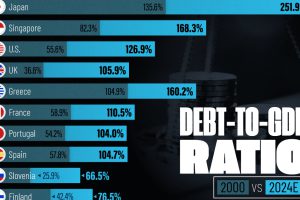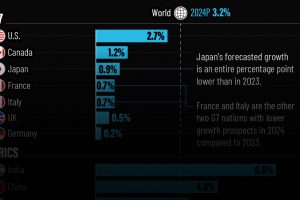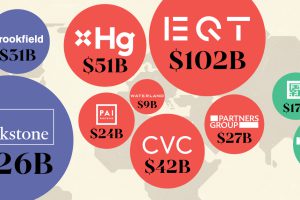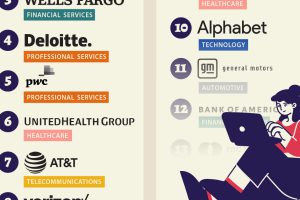The Downfall of Home Capital
And what it could mean to global investors
The Chart of the Week is a weekly Visual Capitalist feature on Fridays.
If history does indeed rhyme, then the saga of Canada’s largest alternative mortgage lender could be the opening act in a Shakespearean financial tragedy.
Home Capital Group, the country’s leader in subprime residential loans, is finally on the ropes after years of speculation. The company was the most-shorted stock in Canada at various points in 2015, and it also took the crown as the most-shorted stock in North America for durations of 2016.
Those bears are likely buying the drinks this weekend. Home Capital’s stock has fallen 89% from its peak in August 2014, and over that time the company has shed over $3.4 billion of market capitalization. The biggest portion of the fall came just weeks ago, when depositors withdrew nearly $600 million in cash from Home Capital Group’s balance sheet.
In more recent news: the company has also had its credit rating downgraded, opened an emergency credit facility of $2 billion with sky-high interest rates, and shook up its board as part of a “governance renewal”. Oh, and all of this is happening while regulators pursue allegations that the company intentionally misled investors.
Part of a Bigger Narrative
It’s no secret that Canada’s housing and mortgage sector has been precarious for some time.
While the country’s banks and real estate sector largely shook off the effects of the Financial Crisis, the market has been bubbly and speculative since then. We previously noted the insanity of Vancouver’s real estate market, and even The Economist was calling Canada the most overvalued housing market in the world years ago.
Not much has changed. Governments have tried to step in with foreign buyer taxes, but it’s not enough to stop skyrocketing prices in Toronto. At the same time, Vancouver is also rebounding from recent government interventions to try and cool off the local market. In fact, prices there are up 5% in just three months.
While Home Capital Group is a relatively small fish in the Canadian mortgage pond, the saga has also prompted global investors to think deeper about Canadian housing. Are the issues with Home Capital a one-off, or are they systemic to the market as a whole? Is there a possibility of widespread contagion?
Gut Check Time
Markets are divided on the above issues for now. Some analysts are calling Home Capital a speculative buying opportunity, while others see it as a potential trigger for the puncture of the Canadian housing bubble.
Contagion has already been spreading, especially to other lenders such as Equitable Group – a company with a similar business model, that has seen shares fall 34% over the last month.
Home Capital contagion has spread to the entire mortgage market, in particular alternative mortgage lenders. Our channel checks suggest [Equitable Group’s] deposit-gathering capabilities will be impaired.
Jaeme Gloyn, National Bank (April 27th, 2017)
At the same time, house prices continue to increase – and governments are doing everything in their power to cool them off without triggering a recession. It’s a financial tightrope act that will be watched closely by investors around the world.
If the Home Capital saga is indeed just the opening act of a Shakespearean financial tragedy, then the following act will also be one to watch.





